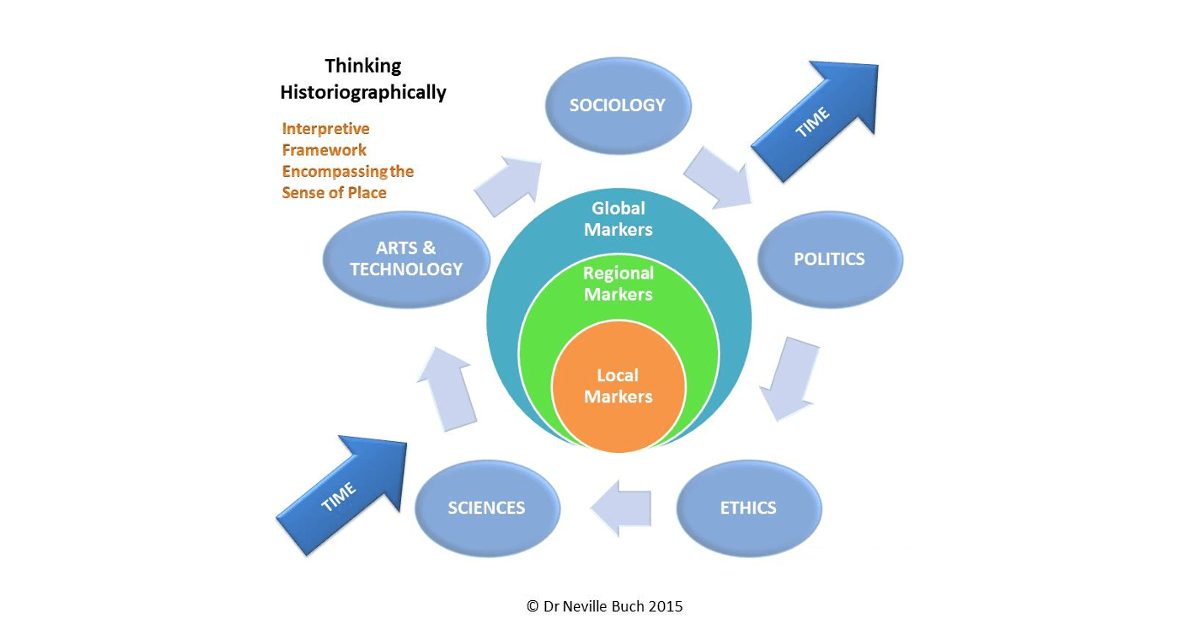View Larger Image
The average person thinks about history in terms of a sense of place. These are categories with markers – events listed in a chronology, names listed in a Who’s Who, or environmental features, including human constructs, in a list of locations. We usually categorize such markers on three levels, globally, regionally, and locally. The last two categories are relative to some limits. Regional can mean large areas within a state, or a large area on part of the globe. Local can refer to areas within a city or parts of a country, or the country itself. Global has clear boundaries; however, the focus in a collection of markers can shift from one part of the world to another part. There is such a thing as national history but when you examine how the average person thinks about the history of a nation, the descriptions are local, regional, or global. The history of a nation itself demonstrates the concept as a political category which sits very artificially on the sense of place. This signals that concepts of the local, the region, and the global are also products of an interpretive framework.
Nevertheless, the average person’s approach to history is generally limited to the sense of place. The professional historian goes beyond the inherit schema to the work of history-making, or thinking historiographically. What is at stake is a reflection on an interpretative framework or schema, the relationship between those aspects within the interpretative process, and also the various relationships that link up in a sense of place, and across time. This last set of relationships – earth time – is the unique factor in the historian’s work. The important caveat is thinking historiographically does not equate to a denial of either scientific or common-sense realism. All that historiography admits is that our ideas shape our memory of the past, as well as how we project a view of the past beyond any memory. Factors, scientific or otherwise, are the cognitive “material” which are shaped, or even constructed, but this does not make most factors appear fluid or malleable, as the realist often fears in admitting intellectual approaches to our way of thinking.
The interpretative framework arises from the corpus of our intellectual disciplines. From a broad understanding of the humanities and sciences, it is obvious there is no one framework, but a wide range of debates between various schemas, some arising from particular disciplines, and others which have developed a life across several disciplines. The historian is not force to make an even treatment over all schemas, as she is not required to take an even treatment over the categories of place. Each question or topic to hand will determine the extent and focus at the level of interpretation and the sense of place.
Have something to share about this article?
Neville Buch
Latest posts by Neville Buch (see all)
- Dear grossly, ethically, corrupted - December 21, 2024
- Thoughts with a Professional History colleague on “Artificial Intelligence” - December 21, 2024
- Stephanie M. Lee on “AI by omission”, The Chronicle of Higher Education, Thursday, December 19, 2024 - December 20, 2024

